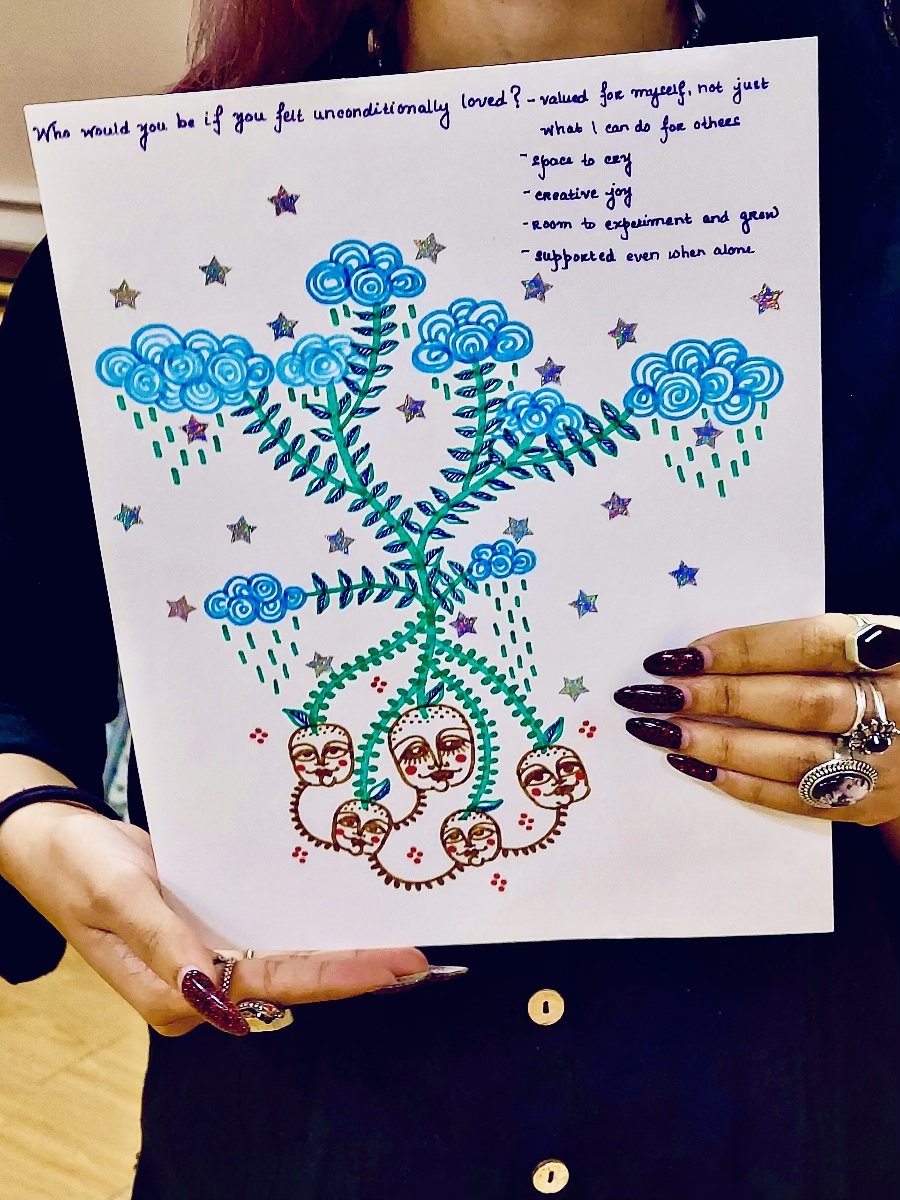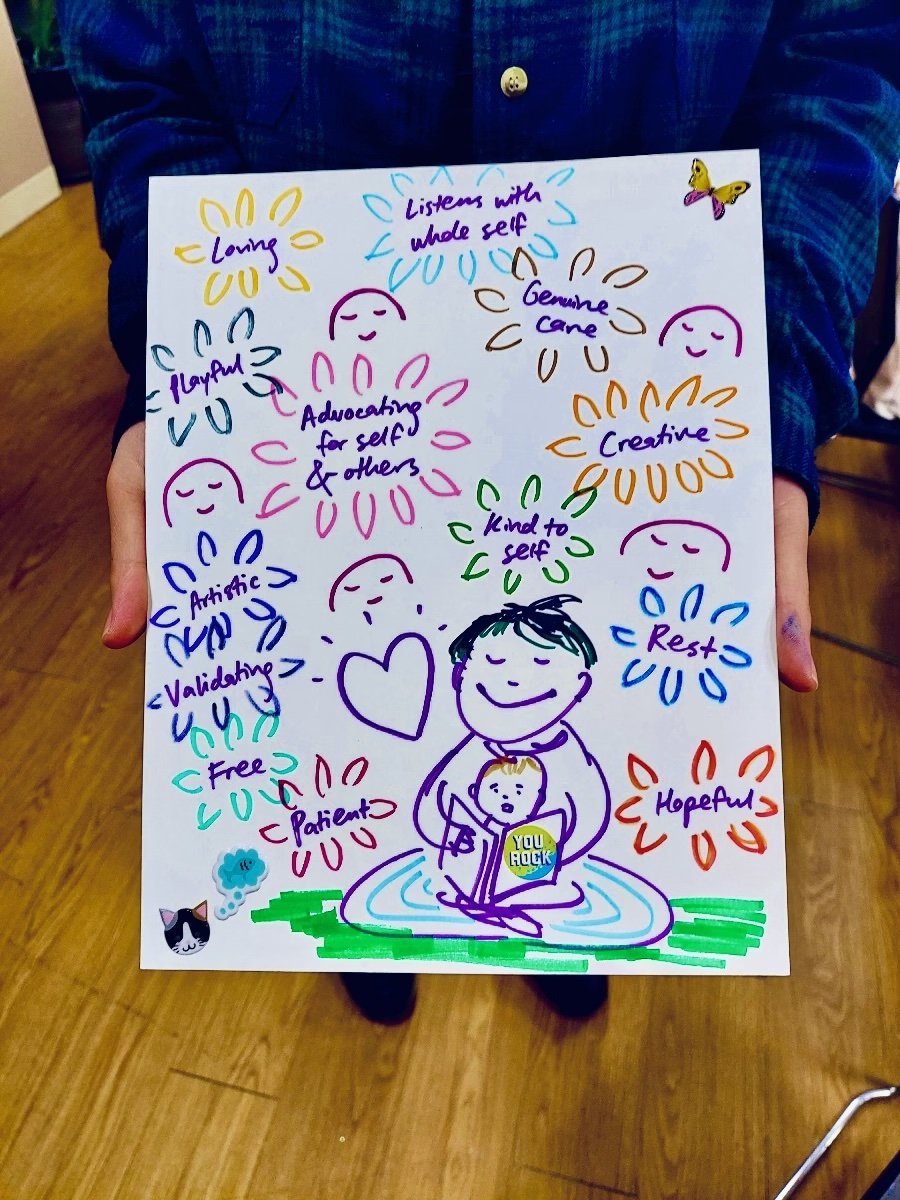Narratives of Transformative Love
-
Others' narrative of care
Caregiving happens when others see you as weak.
Caregiving is grim. Caregiving is serious.
-
Our narrative of care
Caregiving happens whether you are seen as strong or weak.
Caregiving is playful. Caregiving is fun.
Methods
As part of the AARW (Asian-American Resources Workshops) QTAPI Love Letters, H.E.A.L (Ancestral Empowers Ancestral Love), a grassroots community organization, was honored to lead our workshop called Narratives of Transformative Love for the QTAPI community, which uses art and writing to address past wounds, negative criticism, and societal expectations in order to heal and transform our identity to reflect our own strengths and develop authentic radical self-love and forgiveness.
Using various QTDBIPoC-centered ancestral roots, we began the session by practicing somatic indigenized yogic movements to help center ourselves as we move through the process of changing the negative narratives created by others to redefine us for us. We address the negative statements we have internalized through writing and fire rituals (set for later times), along with drawing and writing letters of compassion or forgiveness to ourselves and/or others.
Then we shift away from the white-supremacity standard of "normalcy" and embrace our true inner selves to re-imagining our identities through visual art and words. You will find various images of people's depiction of their own identities and their own words on how to process and interpret it.
***Disclaimer: Unlike other art, these images of reclaimed identities are not up for interpretation or debate or others' opinions or insights. It stands as a reminder that only we have the right to define ourselves, and regardless of our own intentions or intuitions, we do not know the entirety of others' lives and their lived experiences as a whole.
For other information regarding our work, please follow Healing Empowers Ancestral Love's under-construction & work-in-progress Instagram via @healin.empowers.ancestral.love
Sophia Chen
I loved the variety of materials and colors Prema/AARW provided. It inspired me to play with different textures and have fun with both drawing and writing. Especially coming off of a demanding and discouraging week in school, this moment of creativity was a valuable time for me to rediscover parts of myself that I love. In the image, I wrote out one or two word descriptions of parts of my identity that I cherish. I also wanted to use color and draw out organic and natural shapes to remind myself that connecting to the outdoors is something I also deeply enjoy. For me, this image was a needed exercise of freedom and whimsy.
Jenny Ly
To my dear QTAPI community, I created this collage with lots of emotions of how I would flourish as a QTAPI person. I've used a lot of cute stationery I own as a way to reclaim that mannerisms, appearance, and taste in aesthetics don't equate to gender identity. In the scatterings of scraps and washi tape, it also represents that it's ok to be a mess. There's a lot of expectations for us to fit the model minority and stay submissive to the American gaze, but I say be brash, loud, and unapologetic. Disrupt the norm of white cisnormative America. The birds represent sticking with a flock. Especially at AARW, I've met a lot of lovely queer folks at events that make me realize that we need more intersecting identity spaces to care and love for each other. there are many tiny details I could go on about and keep on adding. The last thing I want to say is that it is the word imperfect, I wrote as "Im Perfect" because perfect subjective and my intersecting identities are just that. In my life, there's always something to add and change like this collage. Being QTAPI is complex, but to embrace my vulnerability is being able to accept myself and the new things I discover about being QTAPI.









